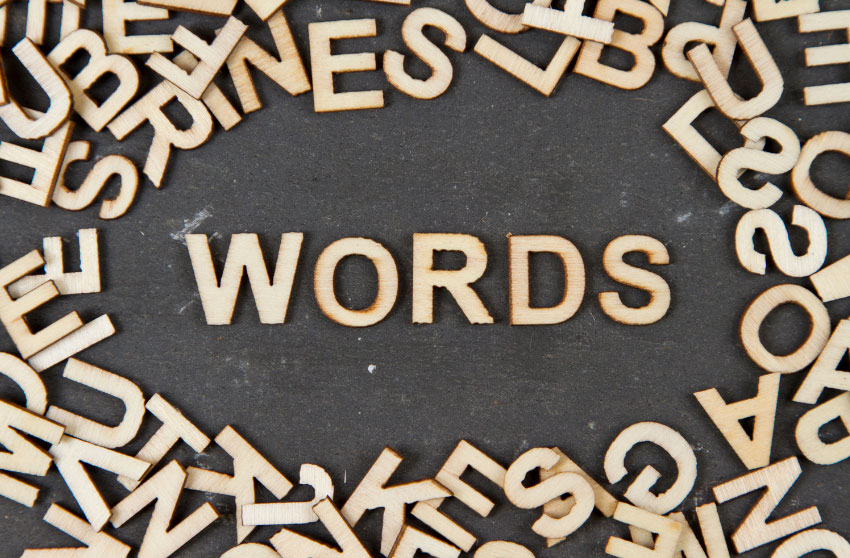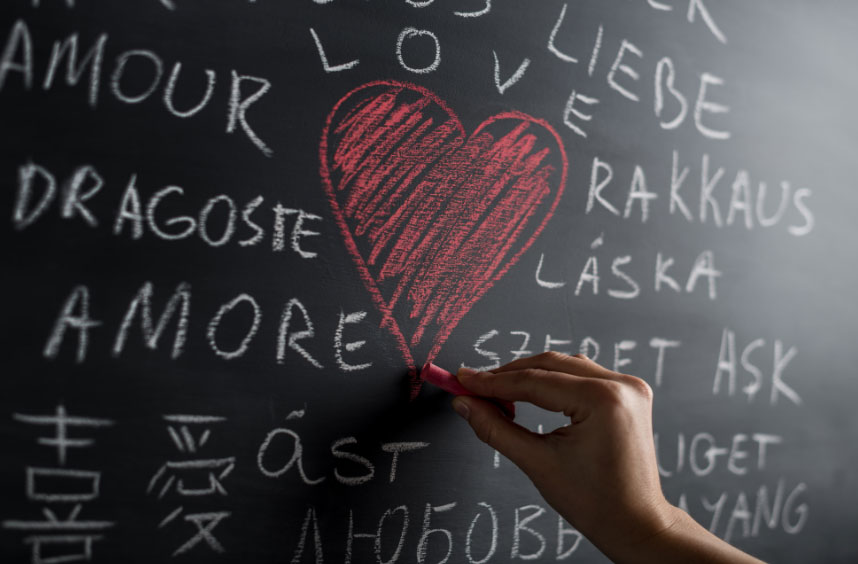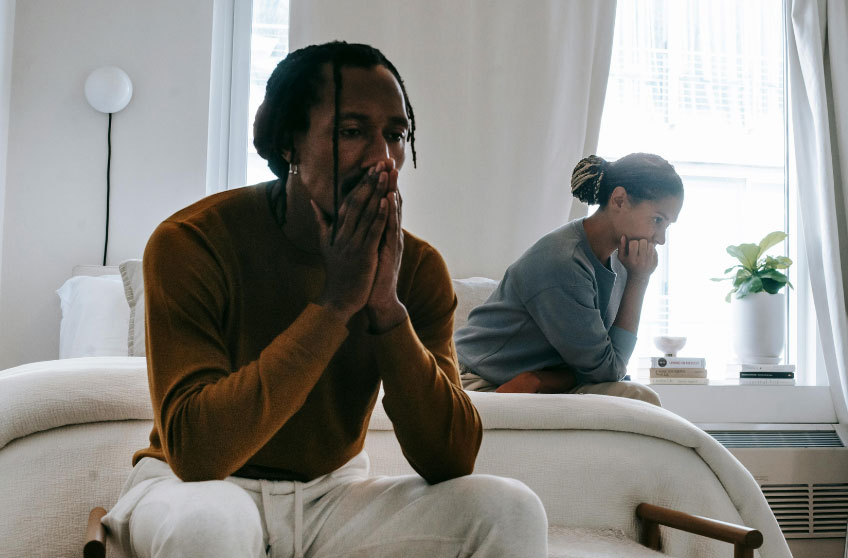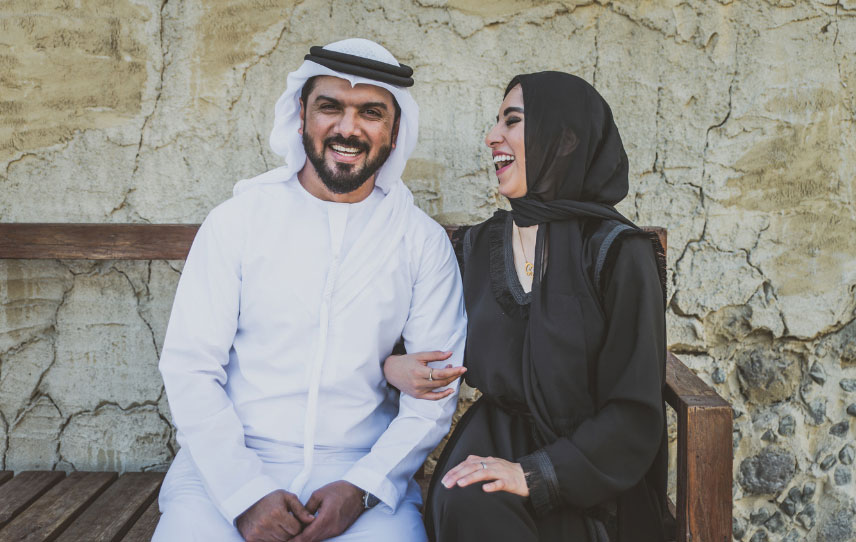Building Stronger Relationships: A Culturally-Sensitive Guide to Connection in Dubai

Building Stronger Relationships: A Culturally-Sensitive Guide to Connection in Dubai
Have you ever wondered why some relationships seem effortless while others require constant work? As a Mental Health Coach who provides Holistic and Culturally-Sensitive Relationship Therapy & Coaching in Dubai, I see many clients from diverse backgrounds asking this same question. Whether you're navigating a cross-cultural marriage, considering multicultural couples therapy, or simply looking to deepen your connection across cultural differences, you can transform your experience of love and partnership by understanding what constitutes the foundation of healthy relationships while honouring your unique cultural heritage.
Working with expat individuals and couples in Dubai for over 10 years has taught me that relationship foundations remain universal, even as cultural expressions of love vary beautifully across traditions.
The Trust Factor: Building Bridges Across Cultures

Trust isn't just a nice-to-have in relationships—it's absolutely essential across all cultures. As relationship expert Dr. John Gottman often says, "Trust is built in very small moments." However, in my multicultural couples therapy and coaching practice in Dubai, I've learned that those small moments might look different depending on your cultural background.
For Amara, a Lebanese woman, and James, her British partner, trust meant different things. Amara's culture emphasized family involvement in relationship decisions, while James valued individual autonomy. "I don't just feel betrayed," Amara told me during our cross-cultural marriage counselling session, "I feel like he doesn't understand that excluding my family feels like excluding me."
How Different Cultures Build Trust:
- Family-focused cultures usually need to see your families approve of each other and that you're genuinely welcomed into each other's communities before they feel secure in the relationship.
- Independence-focused cultures tend to care more about the personal commitments you make directly to each other and whether you can have honest, straightforward conversations when issues come up.
- Community-minded cultures often feel most trusting when there's harmony in the relationship and everyone's getting along peacefully, even if that means working around problems rather than confronting them head-on.
- Faith-centered traditions might build their deepest sense of trust through sharing spiritual practices together—whether that's praying, attending services, or walking the same spiritual path as a couple.
When trust is damaged in interfaith relationships or multicultural partnerships, healing requires understanding both partners' cultural frameworks for forgiveness and rebuilding connection.
Beyond Words: Communication Across Cultural Boundaries

"We talk all the time, but I don't feel heard," Mark, an American expat, confessed during a culturally-aware couples therapy session. His partner Elena, from the Philippines, nodded in agreement—they were communicating constantly but struggling to connect across their cultural communication styles.
Communication in multicultural relationships goes far deeper than language barriers. In my work with international couples in Dubai, I see how different cultural communication patterns can create misunderstandings:
How Different Cultures Actually Talk to Each Other:
- The "just say it" vs. "you should know" divide: Some cultures teach you to spell everything out clearly—if you're upset, you say exactly why. Others expect you to pick up on hints, tone of voice, and what's NOT being said, because being too blunt can feel rude or hurtful.
- The "read my mind" expectation: If your partner grew up in a tight-knit family where everyone just "gets" each other without explaining, they might genuinely expect you to understand their needs without them having to say it out loud. Meanwhile, you're sitting there thinking, "Just tell me what you want!"
- The feelings rulebook: Whether it's okay to raise your voice, cry during an argument, or show disappointment varies wildly between cultures. What feels like healthy emotional honesty in one family might seem overwhelming or inappropriate in another.
- The body language minefield: Something as simple as how long you look someone in the eye, whether you touch their arm while talking, or how close you stand can mean completely different things depending on where you grew up. You might think you're being warm and friendly while they're feeling invaded or disrespected.
Consider these culturally-informed questions:
- Does your cultural background influence how you express disagreement?
- When your partner is quiet, are you interpreting their silence through your cultural lens?
- Can you recognize when cultural communication styles, not relationship problems, are creating confusion?
Active listening in multicultural relationships means being fully present while also being curious about your partner's cultural perspective. As therapist Esther Perel wisely notes, "Behind every complaint, there's a deep personal longing"—and often, a cultural context that gives that longing meaning.
The Five Love Languages: Cultural Expressions of Affection

Have you ever given a thoughtful gift only to receive a lukewarm response? In cross-cultural relationships, this disconnect often has cultural roots beyond Gary Chapman's five love languages.
Priya, from India, and Michel, from France, had been together for eight years when they realized they were expressing love in culturally different ways. Priya showed love through acts of service—cooking elaborate meals and caring for Michel's needs—which her culture taught her demonstrated devotion. Michel expressed love through quality time and verbal affirmation, values emphasized in his more verbally expressive culture.
How Love Shows Up Differently Across Cultures:
- "Actions speak louder than words" cultures often show love by doing things for you and making sure you're welcomed into the whole family circle. If your partner's mom starts cooking your favourite meal or their siblings include you in group chats, that's love language in action.
- The gift-giving guessing game: A small token might just mean "thinking of you" in one culture, while in another it could signal "I'm ready to get serious." Meanwhile, some cultures see expensive gifts as romantic, others as flashy or inappropriate.
- The touching rules: What feels like natural affection to you might make your partner uncomfortable, or vice versa. Some families hug and kiss everyone hello, others keep physical affection private. It's not personal—it's just what feels normal to them.
- Together time means different things: Your idea of quality time might be a quiet dinner for two, while theirs involves the entire extended family, loud conversations, and someone's cousin showing up unannounced. Both are love—just expressed differently.
- The "say it out loud" factor: Some cultures are all about verbal praise and "I love you" twenty times a day. Others show the same feelings through quiet presence and steady support, but saying it feels awkward or unnecessary.
- When faith gets involved: If you're from different religious backgrounds, love might look like praying together, respecting each other's spiritual practices, or finding ways to honour both traditions. Understanding what spiritual connection means to your partner can unlock a whole new level of intimacy.
Cultural Love Language Exercise - Your turn:
1. Discuss how love was expressed in your family of origin
2. Explore what love expressions feel most meaningful from your cultural perspective
3. Practice your partner's cultural love language, even if it feels unfamiliar initially
Navigating Conflict: Cultural Approaches to Disagreement

Conflict isn't the problem—it's how different cultures approach conflict that can create challenges. In my multicultural couples therapy practice, I see how cultural conflict styles can either escalate disagreements or create harmful suppression.
"I was raised in a household where people discussed disagreements openly," explains David, from Germany. "My partner Yuki grew up in a Japanese family that valued harmony and indirect communication. Our different conflict styles nearly ended our relationship until we learned to bridge our approaches."
How Different Cultures Handle Fighting:
- "Let's hash this out right now" cultures believe in tackling problems head-on the moment they come up. If there's an issue, you sit down, talk it through, and don't go to bed angry. They see avoiding conflict as letting problems fester.
- "Keep the peace at all costs" cultures might take time to cool off, bring in a trusted family member to help mediate, or handle things indirectly through hints and gentle conversations. The goal is maintaining harmony, even if it takes longer to resolve things.
- "Respect the hierarchy" cultures factor in who should speak first based on age, gender, or family position. Maybe the eldest family member weighs in, or certain people's opinions carry more weight. It's not about being unfair—it's about following cultural respect patterns they grew up with.
- "Everyone gets an equal voice" cultures expect both partners to jump in, share their perspectives, and work toward solutions together as equals. They might get frustrated if their partner defers to parents or seems hesitant to speak up, not realizing it could be a cultural respect thing.
How to Actually Work Through Fights When You're From Different Cultures:
- Stop trying to prove who's "right": Your way of handling conflict isn't better or worse than theirs—it's just what you learned growing up. Maybe you like to talk things out immediately, while they need time to think first. Both are totally valid.
- Figure out what makes you both feel safe: Have an honest conversation about what freaks each of you out during arguments. Maybe loud voices trigger them, or maybe your silence makes them panic. Set some basic ground rules that work for both of you.
- Explain your cultural "why": Instead of just saying "you're being too aggressive" or "you're shutting down," try "In my family, when people raise their voices, it usually means someone's about to say something hurtful, so I automatically get defensive." Help them understand your reactions.
- Get creative with solutions: You don't have to pick one person's approach. Maybe you start with their "cooling off" period, then follow up with your "talk it through" method. Or alternate who gets to choose the approach based on who brought up the issue.
- Steal the best tricks from both sides: What are the smartest things your families do when they disagree? Maybe your culture has great rituals for making up, while theirs has amazing ways to prevent fights from escalating. Use everything that works.
Remember, as relationship researcher Dr. Sue Johnson (Emotionally Focused Therapy for Couples) points out, "The way we argue with our partners can either tear us apart or bring us closer together"—this is especially true when we honour cultural differences in our approach to conflict.
Balancing Togetherness and Independence Across Cultures
Have you ever felt torn between your partner's need for independence and your cultural values around togetherness?
In cross-cultural marriages, this balance becomes particularly complex as different cultures have varying expectations about individual autonomy versus couple/family unity.
Carlos, from a close-knit Mexican family, and Pia, from individualistic Swedish culture, found this balance challenging. "I wanted us to spend every holiday with my extended family," Pia admits. "But Carlos needed time for his photography and independent pursuits. I took it personally until our culturally-sensitive therapist helped me understand that his independence actually made our time together more meaningful."
The "Together Time vs. Me Time" Cultural Divide:
- "We do everything as a unit" cultures expect couples to make decisions together, spend most of their free time together, and check in with family before making big choices. If you want to take a weekend trip with friends, that might need a family discussion first.
- "Everyone needs their own space" cultures see individual hobbies, separate friend groups, and personal decision-making as totally healthy and normal. They might actually worry if a couple does everything together, thinking it's clingy or codependent.
- The extended family involvement spectrum: Some families expect daily check-ins, Sunday dinners every week, and input on everything from your job to your vacation plans. Others catch up a few times a year and mostly stay out of your business. Neither is wrong—just very different expectations.
- The gender factor: Depending on your cultural background, there might be different rules about independence for men and women. Maybe women are expected to prioritize family time while men get more freedom, or vice versa. These unspoken expectations can create tension if you're not aware of them.
- The spiritual balance: Some religious traditions emphasize individual prayer and personal spiritual growth, while others focus on community worship and group spiritual practices. This affects how much "alone time" feels normal and necessary in your relationship.
- Finding Cultural Balance:
- Support each other's cultural needs for independence and connection
- Communicate openly about different cultural expectations
- Create new traditions that honour both cultural backgrounds
- Celebrate individual achievements within your cultural framework
- Respect timing differences—some cultures value immediate togetherness, others appreciate gradual connection
Cultivating Growth in Multicultural Relationships

The strongest cross-cultural relationships (or any relationships for that matter) are those where both partners commit to growing—individually, as a couple, and in cultural understanding. This means embracing change while honouring traditions that matter to each partner.
"When we first met, we were different people from different worlds," explains Ravi, an Indian software engineer who recently celebrated 15 years with his Irish wife Siobhan. "We've changed careers, moved between Dubai and Dublin, faced family acceptance challenges—but we've grown together rather than apart because we make space for cultural evolution while honouring our roots."
How to Keep Growing Together Across Cultures:
- Stay genuinely curious: Don't stop asking questions about your partner's background just because you've been together for years. There's always more to discover—family stories, childhood memories, cultural quirks that only come up in certain situations.
- Make both families feel valued: You don't have to love every tradition, but find ways to show respect for what matters to each side. Maybe that's learning to make his grandmother's recipe or understanding why her family always calls on Sundays.
- Try learning their language (even badly): Even if you butcher the pronunciation, the effort means everything. There's something magical about hearing "I love you" in someone's native tongue, or being able to chat with their grandmother in her own language.
- Go see where they came from: If you can swing it, visit each other's home countries. Walking through their childhood neighbourhood or seeing the places they talk about helps you understand them on a whole different level.
- Find your tribe: Connect with other couples navigating similar cultural waters. They get the weird challenges you face and can share tricks that actually work. Plus, it's nice to feel less alone in the whole "explaining your relationship to everyone" thing.
- Create your own traditions: Start new customs that feel uniquely yours. Maybe it's fusion holiday celebrations, weekly dinners featuring different cuisines, or your own special way of marking important dates that honours both backgrounds.
Reflection Questions for Cultural Growth:
• How have you both evolved culturally since meeting?
• What cultural aspects do you want to preserve in your relationship?
• How can you support your partner's cultural identity while maintaining your own?
• What new cultural experiences do you want to explore together?
Your Multicultural Relationship Action Plan

As we reach the end of our culturally-informed journey through relationship foundations, I want you to reflect on what resonated most deeply with your cross-cultural experience.
• Was it understanding how trust-building varies across cultures?
• Recognizing your different communication styles?
• Or perhaps discovering how cultural backgrounds shape love languages?
This Week: Choose one cultural aspect we've discussed and commit to having an open conversation with your partner about how your backgrounds influence this area.
This Month: Plan a cultural exchange—spend time with your partner's cultural community or family, or share important traditions from your background.
This Quarter: Assess your cultural integration. What traditions have you successfully blended? What cultural differences still need attention?
When Cultural Differences Feel Overwhelming
Sometimes, despite our best efforts, cultural differences can feel like insurmountable obstacles. If you're reading this and thinking, "We've tried understanding each other's cultures, but we keep falling into the same patterns," you're not alone.
Many multicultural couples in Dubai benefit from working with a culturally-sensitive therapist who understands the unique challenges of cross-cultural relationships. As an experienced multicultural couples therapist experienced in interfaith marriages and expat relationship challenges, I've helped hundreds of international couples navigate their cultural differences while building stronger connections.
I invite you to book a free 20-minute consultation to discuss your specific cultural challenges. During this conversation, we can:
• Explore how cultural differences are impacting your relationship
• Identify which cultural aspects need the most attention
• Create a culturally-informed plan for strengthening your connection
• Determine if multicultural couples therapy would benefit your unique situation
About the Author: Evelyne L. Thomas is an experienced Mental Health Coach and multicultural Couples Therapist and Coach based in Dubai specializing in cross-cultural relationships, interfaith marriages, and expat family dynamics. With experience supporting couples for over 10 years and over 40 years-experience of living and working in the UAE, she brings cultural sensitivity and holistic healing approaches to Mental Health and Relationship Therapies in the UAE. She works with English & French speaking clients online worldwide or in person in Dubai.
All cultures, all backgrounds, all love stories are welcome.
Further Reading:
- "Hold Me Tight" by Sue Johnson - The most popular translation of EFT principles for couples, focusing on creating secure emotional bonds through understanding attachment needs and cycles of disconnection.
- "Love Sense" by Sue Johnson - Explores the science of love and attachment, explaining how our brains are wired for connection and how to nurture lasting bonds.
Never Miss a New Journal Entry
Join the newsletter to stay up to date on the latest from the blog and get answers on mental health and relationships.


.jpg)





